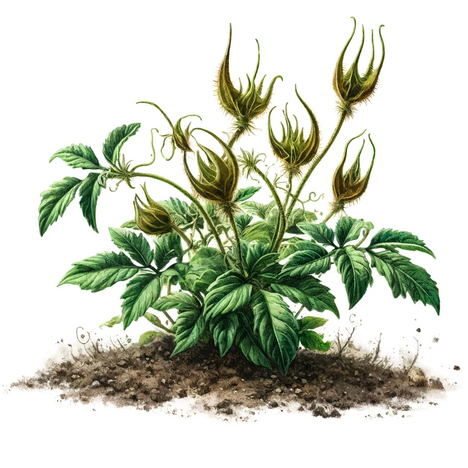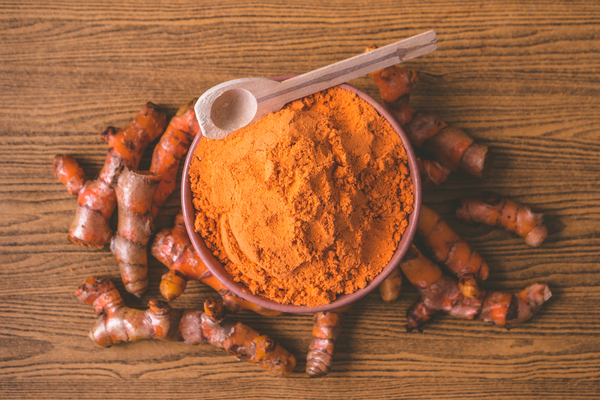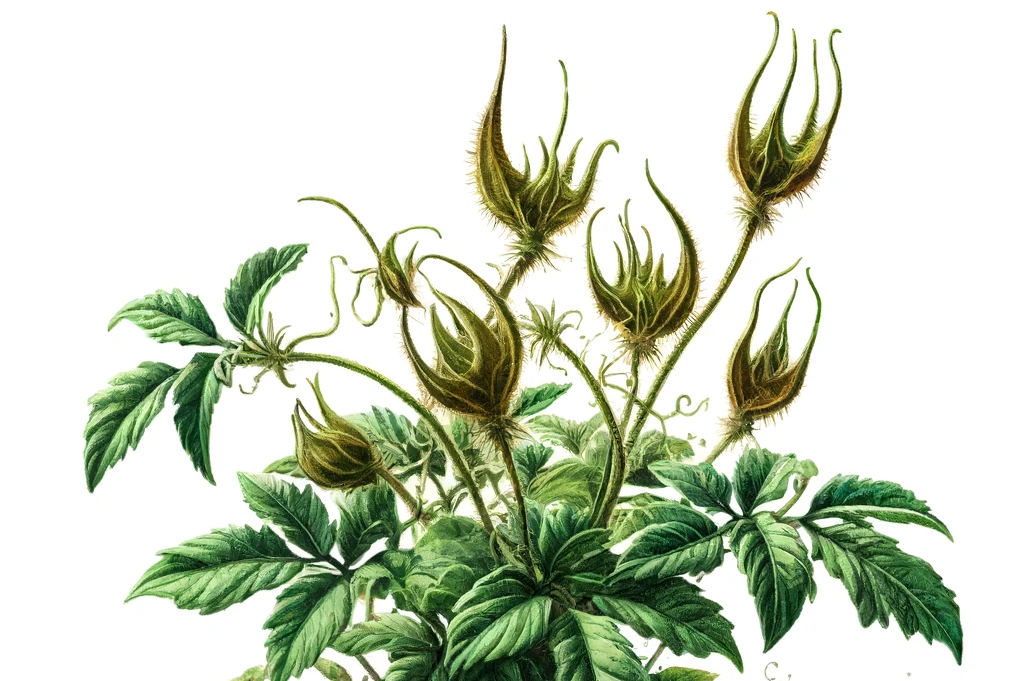Devil's claw root

What is devil's claw root?
Devil's claw root belongs to the so-called bitter plants, which have a high content of iridoid glycosides. These are responsible for the bitter taste and therapeutic properties of the plant. Devil's claw root is usually available as a powder, capsule or tincture and can be used both internally and externally. The dosage depends on the dog's weight and state of health and should always be discussed with a vet.
What are the benefits of devil's claw root for dogs?
Devil's claw root is mainly used for dogs with joint problems such as osteoarthritis, rheumatism or spondylosis. The anti-inflammatory effect can reduce swelling and pain in the affected joints and improve mobility. Devil's claw root can also promote blood circulation and thus improve the supply of nutrients and oxygen to the joints.
Devil's claw root can also help dogs with digestive problems such as flatulence, constipation or loss of appetite. The bitter ingredients stimulate the production of gastric juice, bile and saliva and thus support digestion. Devil's claw root can also have a positive effect on the intestinal flora and strengthen the immune system.
What are the disadvantages of devil's claw root for dogs?
Devil's claw root is not suitable for all dogs and can also have side effects. Possible side effects include gastrointestinal irritation, diarrhea, vomiting or allergic reactions. Devil's claw root can also impair or increase the effect of other medications, for example blood thinners, painkillers or antibiotics. Devil's claw root should therefore not be administered without consulting a vet.
Devil's claw root should also not be used in dogs with stomach ulcers, gallstones, diabetes or heart problems. Pregnant or nursing bitches should also avoid devil's claw root.
Devil's claw root is a natural ingredient that can help dogs with joint or digestive problems. However, it should always be used with caution and in consultation with a vet, as it can also have side effects or interact with other medications.
Properties 4
Are you looking for other ingredients with a specific property?
Just click on them to find more.
If you notice any signs of hypersensitivity or poisoning in your dog, you should see your vet immediately. We are not a substitute for a vet, but we try to be as accurate as possible. Every dog reacts differently and we recommend you get a second opinion or consult your vet if in doubt.
Stay healthy and take good care of your four-legged friend!😊
Similar to Devil's claw root
What is frankincense and how does it work? Frankincense is the dried resin of trees of the Boswellia genus, which grow mainly in Africa and Asia. The resin contains various ingredients that have...
Ginger is a plant from the ginger family. The root tuber is used as a spice or medicine. It has a pungent taste and a spicy smell. Ginger contains many valuable ingredients, such as gingerol, which...
Turmeric belongs to the ginger family and grows in South Asia. The root is dried and ground to obtain the familiar yellow powder. Turmeric contains an active ingredient called curcumin, which is...
Devil's claw (Harpagophytum procumbens) is a plant that grows in the Kalahari Desert and other dry areas of South Africa. It has long shoots that spread along the ground and purple flowers. The...



